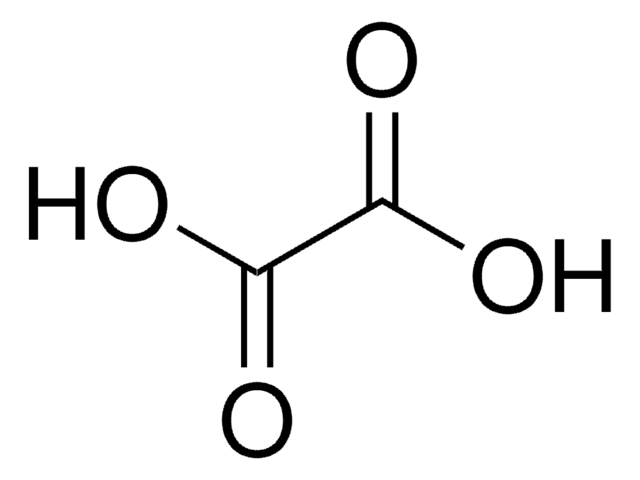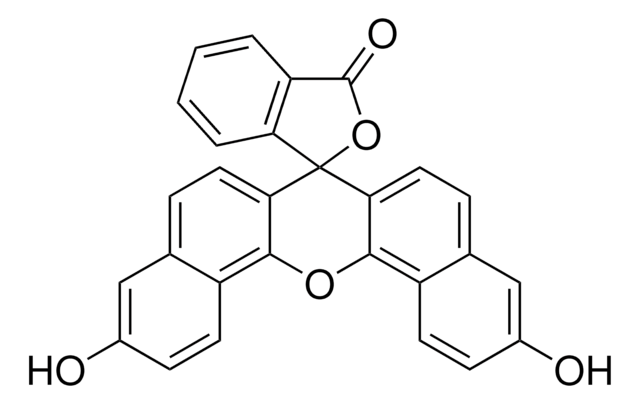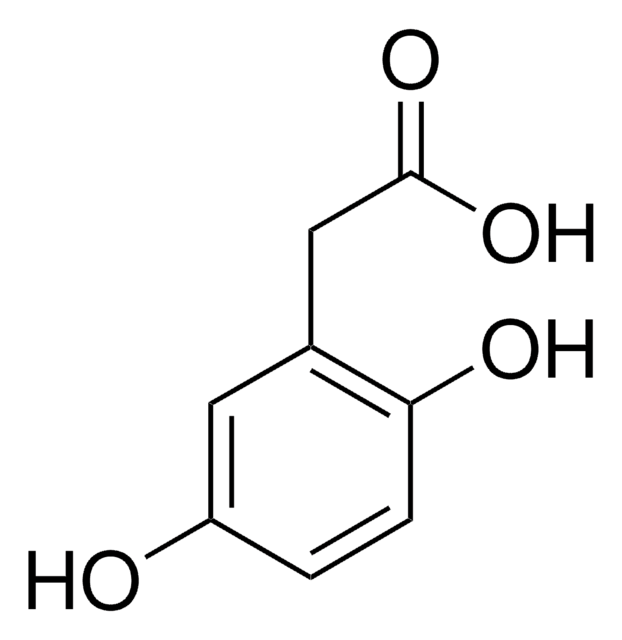71188
Acétate de sodium trihydrate
BioUltra, ≥99.5% (NT)
Synonyme(s) :
Acide acétique sodium salt trihydrate
About This Item
Produits recommandés
Gamme de produits
BioUltra
Niveau de qualité
Pureté
≥99.5% (NT)
Forme
powder or crystals
Température d'inflammation spontanée
1112 °F
Technique(s)
precipitation assay: suitable
Impuretés
insoluble matter, passes filter test
≤0.005% KMnO4-reducing matter (as HCOOH)
pH
8.5-10.0 (25 °C, 3 M in H2O)
Solubilité
H2O: 3 M at 20 °C, clear, colorless
Traces d'anions
chloride (Cl-): ≤5 mg/kg
phosphate (PO43-): ≤5 mg/kg
sulfate (SO42-): ≤20 mg/kg
Traces de cations
Al: ≤5 mg/kg
As: ≤0.1 mg/kg
Bi: ≤5 mg/kg
Ca: ≤10 mg/kg
Cd: ≤5 mg/kg
Co: ≤5 mg/kg
Cr: ≤5 mg/kg
Cu: ≤5 mg/kg
Fe: ≤5 mg/kg
K: ≤50 mg/kg
Li: ≤5 mg/kg
Mg: ≤5 mg/kg
Mn: ≤5 mg/kg
Mo: ≤5 mg/kg
Ni: ≤5 mg/kg
Pb: ≤5 mg/kg
Sr: ≤5 mg/kg
Zn: ≤5 mg/kg
λ
3 M in H2O
Absorption UV
λ: 260 nm Amax: ≤0.01
λ: 280 nm Amax: ≤0.01
Chaîne SMILES
O.O.O.[Na+].CC([O-])=O
InChI
1S/C2H4O2.Na.3H2O/c1-2(3)4;;;;/h1H3,(H,3,4);;3*1H2/q;+1;;;/p-1
Clé InChI
AYRVGWHSXIMRAB-UHFFFAOYSA-M
Vous recherchez des produits similaires ? Visite Guide de comparaison des produits
Application
- to prepare buffer stock solution/sodium acetate buffer 0.2M for gallium-68 (Ga-68) DOTA-(Tyr3)-octreotate (DOTATATE) chemicals
- in the preparation of ferric reduction ability of serum (FRAS) reagent for FRAS assay
- in the preparation of sodium acetate solution to prepare sodium acetate (NaOAc) buffers for radiolabeling
Actions biochimiques/physiologiques
Autres remarques
Code de la classe de stockage
11 - Combustible Solids
Classe de danger pour l'eau (WGK)
WGK 1
Point d'éclair (°F)
Not applicable
Point d'éclair (°C)
Not applicable
Équipement de protection individuelle
Eyeshields, Gloves, type N95 (US)
Certificats d'analyse (COA)
Recherchez un Certificats d'analyse (COA) en saisissant le numéro de lot du produit. Les numéros de lot figurent sur l'étiquette du produit après les mots "Lot" ou "Batch".
Déjà en possession de ce produit ?
Retrouvez la documentation relative aux produits que vous avez récemment achetés dans la Bibliothèque de documents.
Les clients ont également consulté
Notre équipe de scientifiques dispose d'une expérience dans tous les secteurs de la recherche, notamment en sciences de la vie, science des matériaux, synthèse chimique, chromatographie, analyse et dans de nombreux autres domaines..
Contacter notre Service technique



